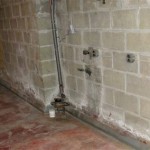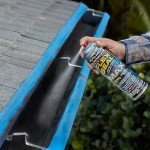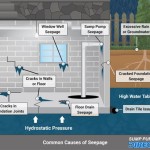What To Do When Basement Floods: A Comprehensive Guide
Basement flooding can be a stressful and costly experience, but knowing what to do can minimize damage and protect your home. Here's a detailed guide to help you navigate this situation effectively:
### 1. Prioritize SafetyFirst and foremost, ensure your safety. If the water level is rising or the current is strong, do not attempt to enter the basement. Contact emergency services immediately.
### 2. Turn Off UtilitiesShut off the main electrical panel to prevent any electrical hazards. Turn off the water supply to the basement to prevent further flooding.
### 3. Remove Standing WaterIf possible, use a pump or bucket to remove standing water from the basement. Be cautious not to use electrical appliances that have been submerged in water.
### 4. Clean and DisinfectOnce the majority of the water has been removed, clean and disinfect the basement to prevent mold growth. Use a solution of bleach and water to clean all surfaces, including walls, floors, and appliances.
### 5. Dry the BasementUse fans, dehumidifiers, and air conditioners to circulate air and dry out the basement. Open windows to increase ventilation if possible.
### 6. Inspect for DamageThoroughly inspect the basement for any damaged materials. This includes drywall, insulation, flooring, and furniture. If there is any structural damage, contact a professional for repairs.
### 7. File Insurance ClaimIf your basement has sustained significant damage, file an insurance claim as soon as possible. Document the damage with photographs and videos for the insurance company.
### 8. Prevent Future FloodingTo reduce the risk of future flooding, consider installing a sump pump with a battery backup, waterproofing your basement walls, and grading your yard to divert water away from the foundation.
### Additional Tips- Stay informed about weather forecasts and be prepared to take action if flooding is predicted.
- Store valuables in a safe and dry location.
- Regularly inspect your basement for any signs of leaks or moisture.
- Consider installing a flood alarm to alert you to rising water levels.

Water In Your Basement What To Do And Who Call Forbes Home

Flooded Basement Cleanup Who To Hire And Steps Take Bob Vila

Flooded Basement Cleaning Rapid Water Extraction Drying Service

6 Simple Ways To Prevent Basement Flooding American Dry

Handling Basement Flooding And Prevention

3 Step Clean Up Plan After Your Basement Floods Waterproof Com

Top 5 Steps To Take When Your Basement Floods D Bug Waterproofing Greensburg Pa

Basement Flooding Will Become More Common With Global Warming

Tips For Handling Water In Your Basement Zoeller At Home

Here S Why Your Basement Flooded Even When You Have A Sump Pump Forbes Home
Related Posts







